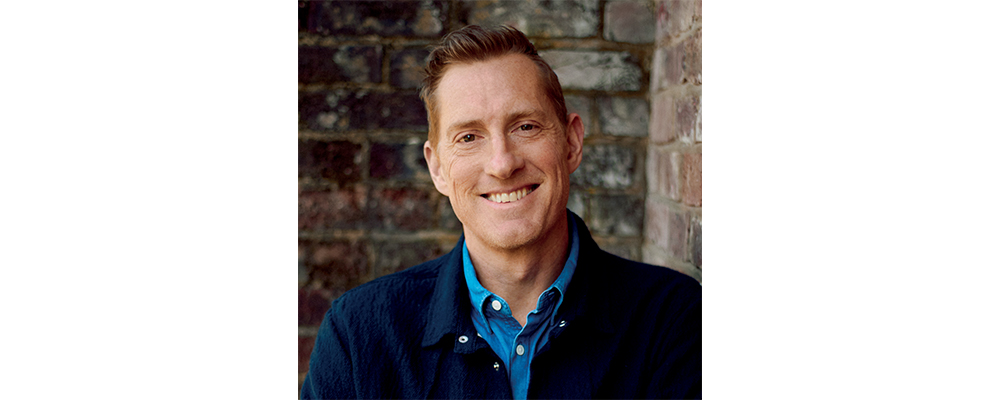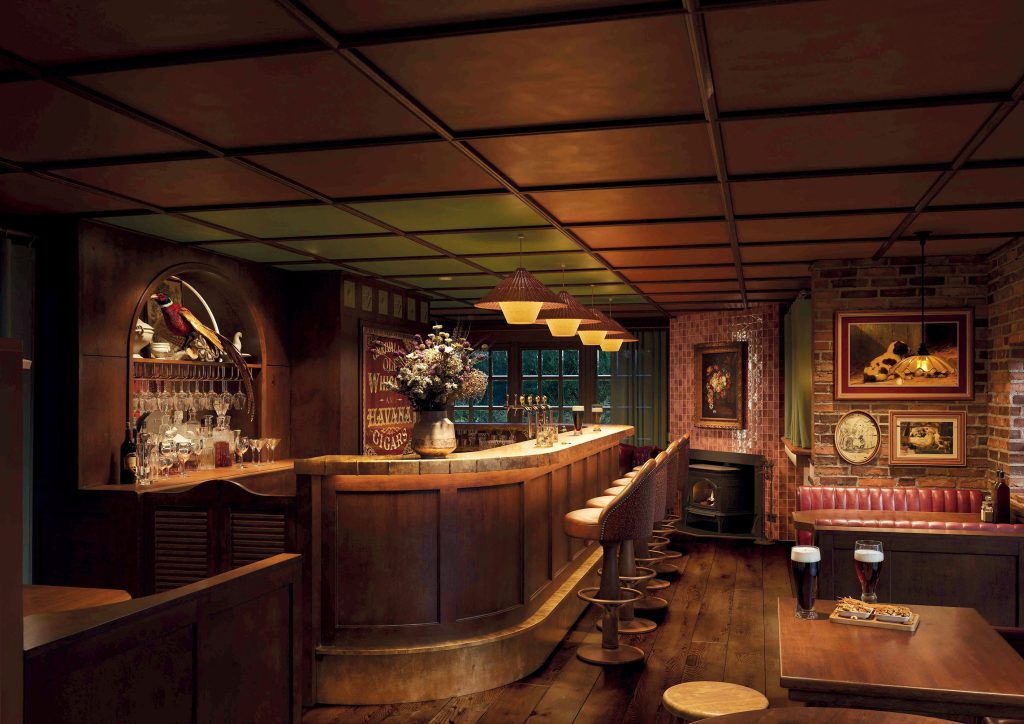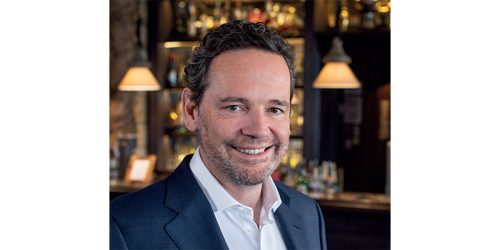Chris King, Founder and CEO, Crafted
From dot-com ventures to innovative hotels, Chris King’s career defies convention. As he prepares to launch Crafted at Powdermills, he reflects on lessons learned, creative risks, and balancing business with nature and wellbeing.
Words by Emma Kennedy.
Like many entrepreneurs, Chris King is not short of ideas. The first part of our meeting was spent navigating a résumé that leaps across myriad sectors – from sports recruitment to property development, bars and restaurants, and much more. As the conversation unfolded, a pattern emerged, revealing how seemingly disparate career dots connected.
In simple terms, his approach appears to take an existing model, realise he can do it better, find a gap in the market – and turn that into something real. Some ventures have gone on to become highly successful. Others didn’t quite take off, while a few have evolved into something else entirely. It was an intriguing insight into a man with a creative, open-ended outlook – where no area of interest is out of bounds.
Academically strong in maths and science and a keen sportsman, Loughborough University was an obvious choice when considering a degree. Assuming he was driven from a young age, King shakes his head and smiles.
“No. I came out of that degree totally clueless, if I’m honest. Most of my friends went off on safe career paths. I briefly considered retraining as a chiropractor or an osteopath and at one point an architect, but I couldn’t face any more studying. Then I thought I would have a career with one of the big sports brands – NIKE or Adidas or agencies like IMG. But it was a pretty closed shop back then – full of the old boys’ network, which, as a kid from a comprehensive school in Leicester, I just didn’t have access to. So instead, I took off around the world trying to figure out what the hell I was going to do with the rest of my life. I was just a bit lost really.”
On his return, King ‘fell’ into recruitment. “I was thrown in at the deep end, in an industry I knew nothing about. It was a school of hard knocks, in an environment where you either sink or swim. But it was exhilarating and energetic; I was surrounded by people winning, losing, and enjoying themselves. In hindsight, I think I was in the right place at the right time.”
That time was the late nineties – the height of the dot-com boom. Aged 26, with just a few years of work experience under his belt, his entrepreneurial instincts took hold, laying the foundation for the non-linear career path that followed.
“The internet was like the emperor’s new clothes – so there was plenty of opportunity. Nobody knew any more about it than you, because in reality, no one knew anything about it at all – which meant there were very low barriers to entry,” he tells me.
Whilst still in his first role, he and a colleague came up with an idea for an online recruitment business. “Looking back, it was much like what LinkedIn is today. It was about putting the community of job seekers and professionals online and giving employers access to that community. We raised some money, and that was my first entrepreneurial venture.”
That same year, he teamed up with friends to open a bar in Clapham, bought his first property, remortgaged it, and invested in a hospitality business as a ‘side hustle’.
The internet business lasted just one year. “It was all quite abrupt. We had spent all the money that we’d raised, and we were not sustainable, so when the dot-com bubble burst, like many companies at the time, that was it.”
Back at the drawing board, he quickly regrouped and considered his options. With a toe dipped in the hospitality industry, a good understanding of recruitment, and a passion for sport, his next venture was a sports recruitment company which became his focus for the next 12 years.
“We grew fast, working with major global brands, events, governing bodies, broadcasters, and agencies. The business expanded from London to Switzerland, Beijing, Singapore, Sydney, Amsterdam, and Munich. It was exciting and gave me insight into building across cultures. But like many entrepreneurs, I got bored easily,” he admits with a smile. “It all started to feel a bit rinse and repeat, and I was ready to leave.”
Throughout this period, King had continued to feed his passion for design and development. “The recruitment business was great, but it was all transactional. Taking old buildings and making them relevant again provided the creative challenge that I love. I guess it’s about creating a tangible, physical product, which ultimately gave me enough confidence when it came to step into the hotel world.”
That step came through a partnership with seasoned hotelier Chris Penn, and together they launched Birch Hospitality. Its first property, in Cheshunt, Hertfordshire, was initially successful – hailed as The Sunday Times Hotel of the Year shortly after opening in 2020.
By any standard, Birch was born of a bold concept: challenging traditional notions of luxury. Set in a stately Hertfordshire mansion, it offered a heady mix of craft workshops and nature-driven experiences. With its raw aesthetic and inclusive, laid-back vibe, Birch stood out, and to the industry and its many guests, Birch appeared to have its bare feet firmly under the table.
“We put our heart and soul into Birch,” King begins. “It was straight after COVID, with all the trials and tribulations that came with it. The whole idea had been conceived, designed, and created before the pandemic, and by the time we finally opened, London – like much of the country – was in a staycation bubble. That undoubtedly helped the business, and Birch flew high and fast at that point.”
Yet in 2023, both founders stepped away – and soon after, the then two-strong brand ceased trading.
So what went wrong?
“Birch was a mix of many different opinions and voices around the table,” he says diplomatically. “It was a joint venture with investors and operators from the industry, but ultimately, there were too many moving parts. There are lessons I’ve taken from that journey – and I’m now trying to right the wrongs and learn from those mistakes – essentially by making a far more efficient operation.”
A beautifully restored Georgian Grade II-listed country house, is the setting for Kings new venture, Crafted at Powdermills. It’s lakeside location in East Sussex will comprise 55 rooms and suites, along with three self-contained cottages. As well as on-site dining, it will have its own pub and members club, creative spaces, and wellness facilities. The look and feel echo the authentic aesthetic of Birch – an unmistakable nod to King’s steadfast belief in the concept, if not its original execution. This time however, with investment from Limestone Capital – whose premium portfolio includes the luxury Aethos hotel group – King’s vision is hopefully on firmer ground. What will the points of difference be I ask him?
“Well, it’s going to be a little more grown up I guess, in a more boutique environment. The massive scale of Birch – whilst part of its charm – was also part of its challenges. Running something that big, with so much inventory that needed to be worked through – every single day of the week – was tough. Crafted is going to be more curated. Doing things on a smaller scale allows everyone to take that much more care and attention to the detail. Now I’m with Limestone Capital – it’s far more vertically integrated. We haven’t got all the different fractions of ownership versus operator versus brand. If I need to buy something I don’t have to question who’s paying for it, or who’s looking after that marketing budget. It makes life simpler in terms of decision making and allows us to think and move a lot quicker.”
Most hotels fall into a clear category, but Crafted isn’t a cut and dried concept, and I ask King who he believes it will appeal to. Considering the question, he is thoughtful.
“I don’t think there’s a typical demographic,” he begins. “Powdermills has an abundance of nature. It has a lake, meadows and pastures and space to grow food. So, it will certainly appeal to those who want to escape the urban jungle and find a connection with nature, alongside an interest in arts and crafts. But we obviously need to deliver the fundamentals – so the F&B offerings will be brilliant too.
There are a lot of well-established brands with similar offerings but at eye-watering costs. I think we will appeal to the consumer who has paid those prices and gone ‘WOW, was that really worth it?’ Clearly, we want to make money but are trying to keep prices as accessible as possible. It will hopefully be a slightly more playful, relaxed, and informal environment, where guests will come to feel super comfortable. While it’s not going to be adults only, we’re not targeting families this time around. There won’t be bunk beds in the rooms, and there will be a limit to the kids on site. At Birch, we had corporate customers, members, couples and families, all occupying the same space – and it was a clash.”
From a design perspective, the visuals show a more polished aesthetic, and I ask King how involved he has been in creating the interiors.
“I’m very hands-on,” he grins. “I am working with some of the designers from before including Andreas Christodoulou. It felt natural to start the journey with someone that I knew, to kind of de-risk the process a little bit for everyone involved. Andreas is an artist – a sculptor, with a great creative brain. But it’s very much a collaboration. We discuss every fabric, every chair, every everything.” He pauses briefly before adding with feeling, “I am hugely passionate about what I’m doing, and therefore those details – whether it’s the playlist or the light bulb in reception – they all matter. This time around it’s not all on my shoulders, but I still feel a huge weight of responsibility to deliver on my promises, to my investors, to my team…and to myself.”
King’s determination for Crafted to succeed is almost tangible. First and foremost, as a business, frequently referencing his obligations to those involved. But that same feeling, and emotion is present whatever aspect of the hotel he is discussing. Though confident, there isn’t a hint of complacency and his plans for future growth somehow seem inevitable. “Well, I’ve been outspoken about the fact I want to grow a number of hotels, both in the UK and also overseas. The challenge is finding the right property, but I’m always looking.”
But for now, King’s focus remains fixed on Crafted at Powdermills. As our conversation ends, I leave him to continue the final preparations ahead of its imminent opening – today, that means sourcing the perfect planters. Crafted may be smaller in scale, but its ambition runs deep. For King, this isn’t just another venture – it’s a considered response to everything he’s learned, and a quiet revolution in how we connect with place, purpose, and each other.















